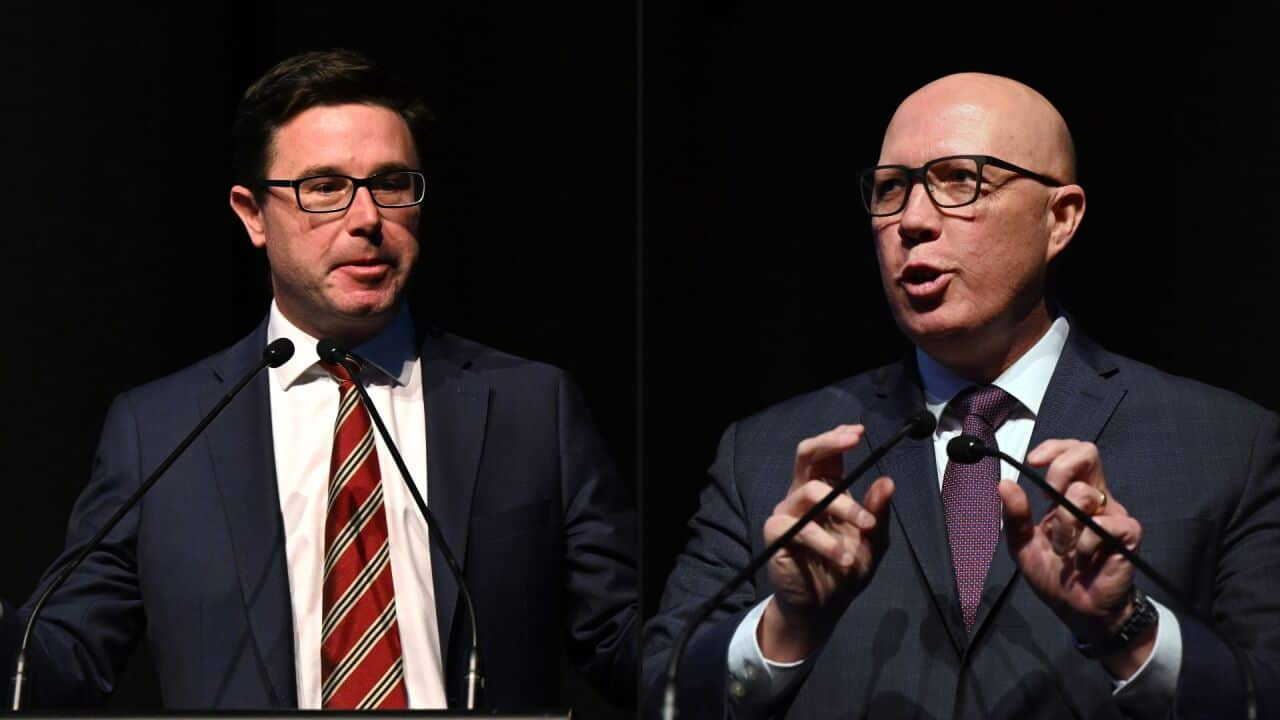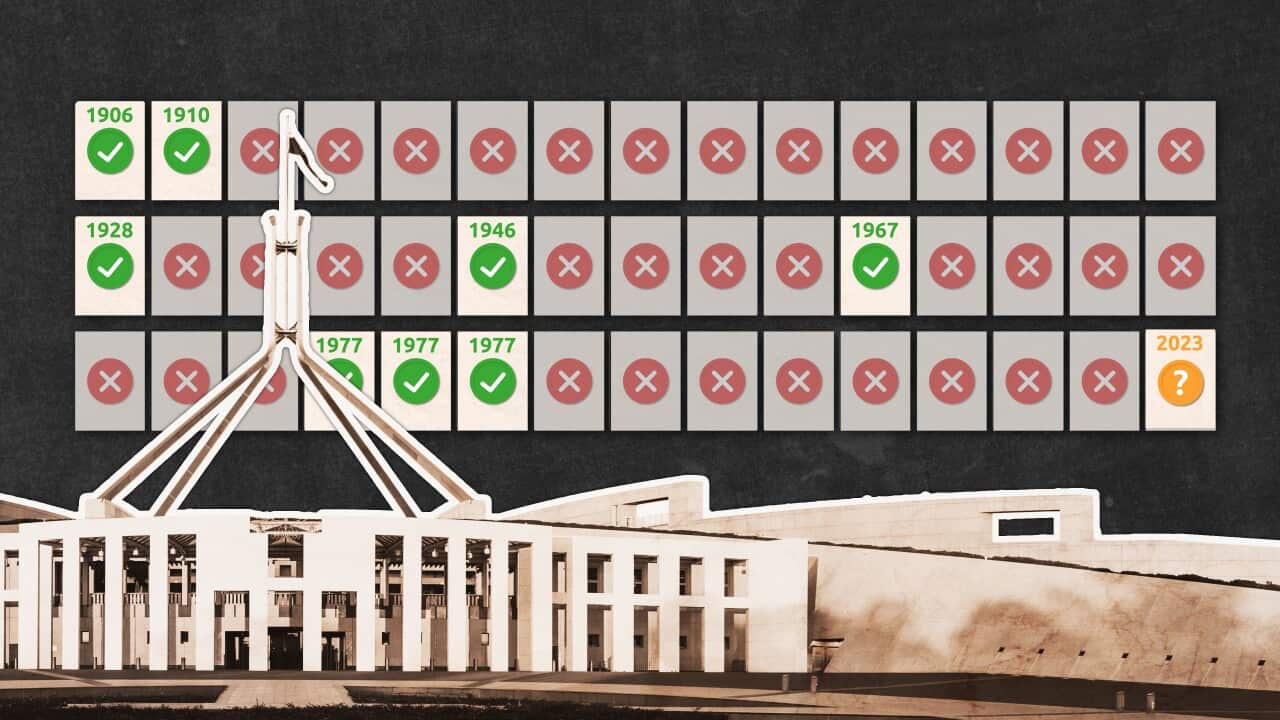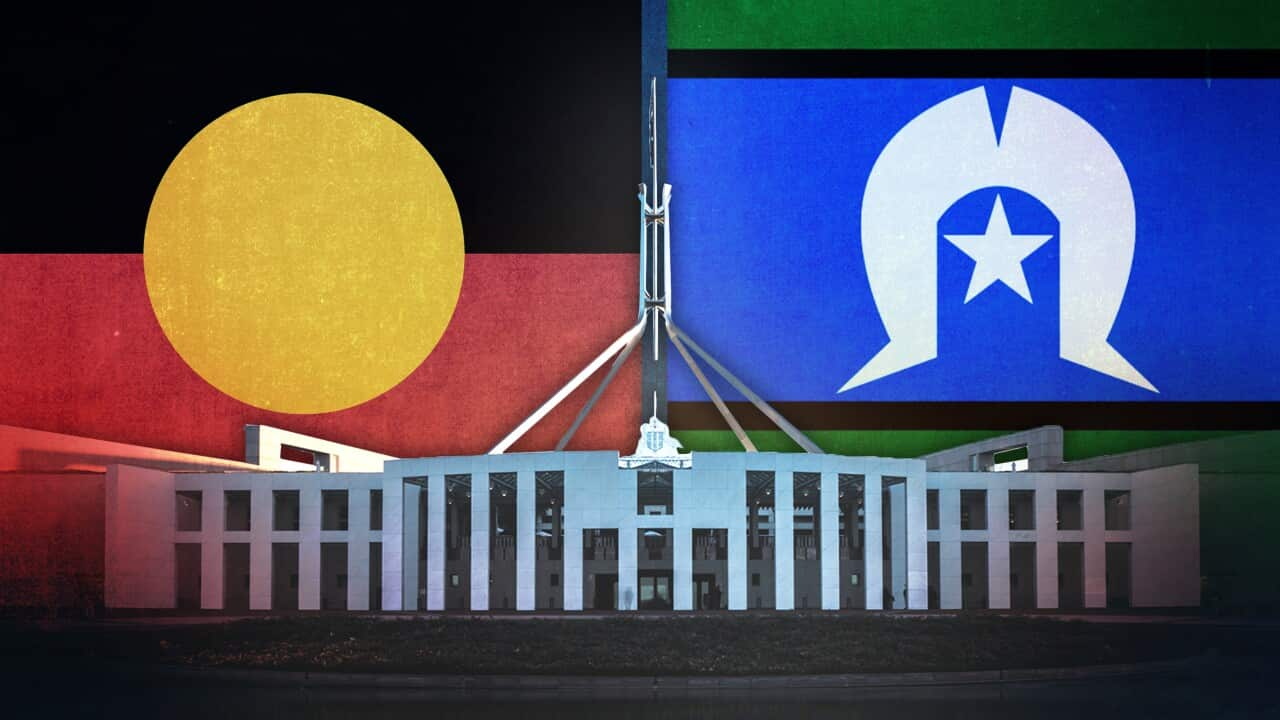Key Points
- Peter Dutton pushed for more details about the Voice during a speech at the Liberal National Party convention in Brisbane.
- He accused the prime minister of setting Australia "on a course to division".
- Nationals Leader David Littleproud told the convention he did not believe his party would ever accept a push for treaty.
Opposition leader Peter Dutton has ramped up calls for Australians to reject what he calls the most important vote in Australian history.
Dutton urged Australians to vote No in the upcoming referendum on an Indigenous Voice to Parliament during a speech at the Liberal National Party convention in Brisbane on Saturday.
He pushed for more details about the Voice and said the public was starved of an opportunity to contest ideas surrounding "the most significant votes in our nation's history".
"The prime minister has set our country on a course to division, when he has an opportunity to unite us he's choosing the path of division," Dutton told LNP party faithful.
"This is the most significant change that's been proposed to our constitution in 120 years."
It comes two months after Liberal National state MPs voted in favour of historic laws to help shape future treaty negotiations in Queensland.
However, on Saturday Nationals leader David Littleproud told the convention he did not believe his party would ever accept the push for a treaty.
"We don't believe that a treaty is necessary," he told the audience.

National Party Leader David Littleproud (right) during the Queensland Liberal National Party (LNP) annual conference in Brisbane on Saturday, 8 July 2023. Source: AAP / Darren England
Earlier in the week, Indigenous Australians Minister Linda Burney accused Dutton of being a "bully boy" for criticising big businesses supporting the Yes vote.
She claimed the No campaign used tactics pioneered by former US president Donald Trump to divide the nation over the referendum.
During his address, Dutton said the LNP had consistent values but also spoke of points of difference around personality and policy.
"During different periods there's been stability and instability in the organisation and we can't win government if the public sees an organisation which is unfit to govern," he said.











